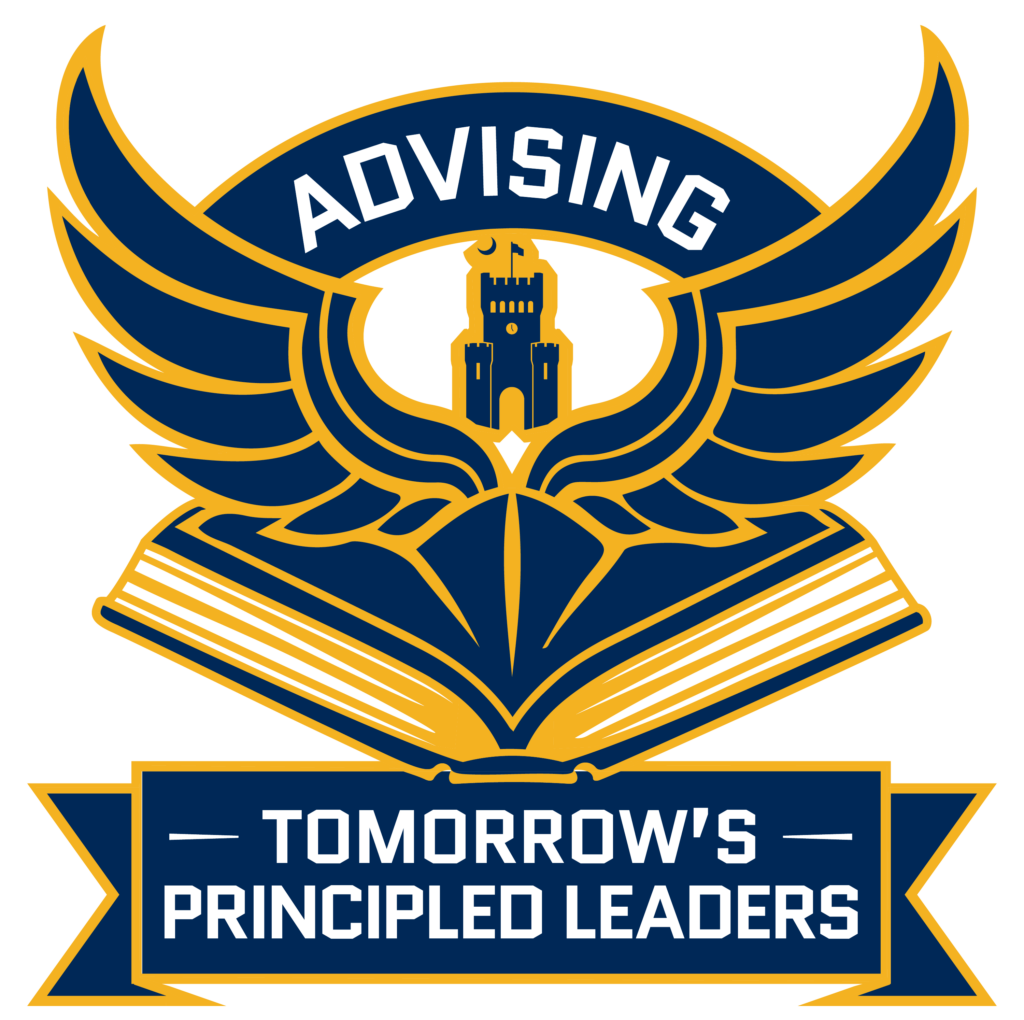
Advising means more than just telling students what classes to take.
As part of the requirements for reaccreditation through the Southern Association of Colleges and Schools Commission on Colleges, or SACSCOC, The Citadel will focus on improving and expanding advising – in all forms – in the coming years.
Part of this effort is making sure cadets, students and advisors have the proper resources and correct information to ensure students graduate on time and excel in their jobs after graduation. The slogan for the college’s chosen QEP, or quality enhancement plan, is Advising Tomorrow’s Principled Leaders. This plan is integral to the reaccreditation process, as all SACSCOC-accredited institutions are required to demonstrate how one’s QEP addresses student needs using data-driven approaches. The primary focus of the QEP is to improve The Citadel’s advising model for all students, starting with second-year cadets.
The second year of college is a time students rethink their academic major, consider career opportunities and plan for high impact curricular, co-curricular and leadership experiences that will influence their Citadel experience and impact their post-graduate outcomes.
“Our QEP is a college-wide plan for improving cadet and student learning over a five-year period. I am grateful for the leadership of Karin Roof, Simon Ghanat and John Robinson, who are heading up the QEP taskforce. I am reminded of their vision and their dedication as I walk past the new lamp post banners on campus,” said Sally Selden, Ph.D., SPHR, provost of The Citadel. “Advising tomorrow’s principled leaders is a noble challenge and worthy goal, and I am confident that we are up to the task.”
The advising taskforce, including Roof and many other faculty members, was tasked with gathering campus feedback and recommendations from various stakeholders in order to determine the direction of the QEP to develop the final written plan. After intensive discussions and planning, advising was chosen due to its potential to positively impact the success of all cadets and students.
“SACSCOC, our institutional accrediting body, developed the compliance standard for a quality enhancement plan to give colleges and universities an opportunity to pursue a project focused on improving the cadet and student experience,” said Karin Roof, The Citadel’s director of accreditation and assessment. “We wanted to further The Citadel’s mission of developing principled leaders by supporting all cadets and students — with a specialized focus on second-year students — in achieving academic, career and life goals through effective and individualized advising.”

Before work began on the QEP, The Citadel’s advising process was expansive but somewhat disconnected. The QEP provides The Citadel with an opportunity to move from “good to great” by adopting best advising practices and concentrating on the second-year experience.
Stephanie Fye, the newly hired director of advising at The Citadel, has spent the past several months working collaboratively and in accordance with the QEP to enhance campus-wide advising services. Her role is one of three new initiatives created to help meet the goal of the QEP — the other initiatives are creating an advising hub and hosting an annual advising summit.
“I am so grateful to be in this role and see firsthand the improvements that The Citadel is making in the advising process,” said Fye. “The Citadel’s faculty and staff are dedicated to the success of our cadets and students, and I’m excited for the opportunity to streamline, improve and expand the advising offerings we already have in place.”
In addition to improvements in advising, research shows that high-impact practices, which promote meaningful learning in cadets and students while also preparing them for life after graduation, often results in deeper learning and a broader skillset. The QEP aims to increase student’s understanding of the benefits of high-impact practices and improve cadet and student participation and engagement.
Accreditation is important for The Citadel for several reasons. It verifies the quality of education cadets and students will receive, provides access to Title IV funding, and certifies the institution’s academic quality and overall credibility.
SACSCOC is the body for institutional accreditation. The mission of SACSCOC is to assure educational quality and improve the effectiveness of its member institutions.

 The Citadel’s Swain Boating Center provides popular event space for Charleston
The Citadel’s Swain Boating Center provides popular event space for Charleston The Citadel Board of Visitors reelects chair
The Citadel Board of Visitors reelects chair The Citadel Museum honors alumnus killed on D-Day
The Citadel Museum honors alumnus killed on D-Day

